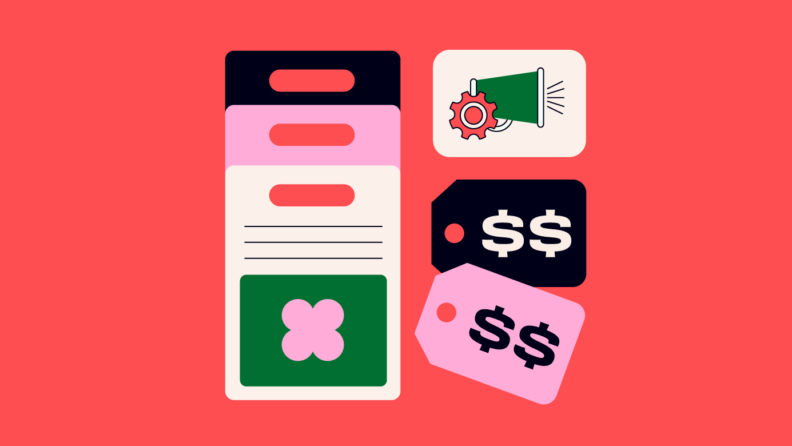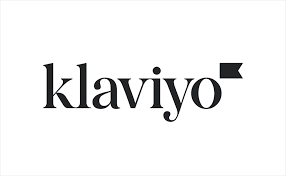Pricing varies based on features, usage, and service level; basic packages might look cheaper, but costs rise with advanced features and higher usage
Upfront cost doesn’t reflect total cost; add-ons, integrations, and premium support can add up, so budget for these extras
Focus on ROI and scalability, not just sticker price; choose software that grows with your team and delivers long-term value
Choosing the right marketing automation software starts with with a clear view of the real cost. Between unclear tiers, feature gating, and hidden add-ons, your budget can balloon fast. Especially when multiple teams (and their wish lists) are in the mix.
Whether you’re leading procurement or managing a marketing budget, this guide lays out what you need to know: common pricing models, typical cost ranges, potential hidden fees, and how to evaluate ROI. Let’s simplify the buying process and ensure your team gets the best value for its investment.
The CMO’s Marketing Automation Software Cost Calculator
What Factors Influence Marketing Automation Software Pricing?
When selecting marketing automation software, you face challenges like understanding pricing tiers and assessing how features like CRM integration or the number of contacts affect costs. Here's what to consider:
| Factor | How It Affects Pricing |
| Contacts/Emails Included | More contacts or emails often mean higher costs, with increases ranging from $50 to $200 monthly, depending on your list size. |
| Campaign Limits | Running more campaigns can raise prices by $100 to $500 per month, based on frequency and complexity. |
| CRM Integration | Adding CRM integration may cost an extra $100 to $300 monthly, improving customer data management. |
| Advanced Analytics | Enhanced analytics features can add $200 to $600 monthly, helping your team track performance better. |
| Customer Support Level | Premium support might cost you an additional $50 to $150 monthly, offering faster response times and dedicated assistance. |
Marketing Automation Software Price Comparison
| Tool | Best For | Trial Info | Price | ||
|---|---|---|---|---|---|
| 1 | Best for integrated ecommerce email & SMS automation | Free plan available | From $11.20/month | Website | |
| 2 | Best for automated lead routing | Free demo available | Pricing upon request | Website | |
| 3 | Best for automating ad placement and targeting | Free demo available | Available upon request | Website | |
| 4 | Best for reputation management | Free demo available | Pricing upon request | Website | |
| 5 | Best for tailored messaging throughout the buyer's journey | Free plan available | From $45/month | Website | |
| 6 | Best for comprehensive CRM integration | Free plan + demo available | From $800/month + $45/month for additional seats | Website | |
| 7 | Best for text automation | 14-day free trial | From $45/month | Website | |
| 8 | Best for automating brand mentions | Free plan available | From $129/month | Website | |
| 9 | Best for small businesses | Free demo + free plan available | From $12/user/month (billed annually) | Website | |
| 10 | Best for customer service | 14-day free trial | From $29/user/month (billed annually) | Website |
Understanding Pricing Models
When choosing marketing automation software, it's essential to understand the pricing models, which differ from the actual cost. Pricing models might include per user, per usage, or tiered subscriptions, each influencing your budget differently. Here's a breakdown of common pricing models:
| Pricing Model | How It Works | What to Watch For |
| Per user or seat | Charges based on the number of users accessing the software | Costs can quickly rise if your team grows |
| Per usage | Pricing depends on how much you use the software, such as the number of emails sent | High usage can lead to unexpected expenses |
| Tiered subscription | Offers different packages with varying features and limits, with prices increasing at each tier | Make sure you need features in higher tiers before upgrading |
| Custom quote | Pricing is tailored to your specific requirements and business size | May require negotiation and can lack transparency |
| Pay-as-you-go or annual | Pay monthly based on usage or commit to a year for potential savings | Monthly plans offer flexibility, but annual plans often provide better value |
Typical Pricing by Company Size
Pricing for marketing automation software scales with company size, affecting your budget as your team grows. Here's what you can expect at different company sizes:
| Company Size | Typical Price Range | What’s Usually Included | Common Use Cases & Vendors |
| Small business | $50–$200/month | Basic email marketing, limited contacts, essential reporting | Email campaigns, small list management; Mailchimp, ActiveCampaign, Constant Contact |
| Mid-size business | $200–$800/month | Advanced automation, CRM integration, more contacts | Multi-channel campaigns, CRM use; HubSpot, Pardot, GetResponse |
| Large business | $800–$2,000/month | Full automation suite, advanced analytics, extensive contact support | Comprehensive automation, analytics; Marketo, Eloqua, Act-On |
| Enterprise | $2,000+/month | Custom solutions, dedicated support, unlimited contacts | Large-scale campaigns, custom needs; Salesforce, Adobe Campaign, Oracle Marketing Cloud |
Hidden & Add-On Costs to Watch For
When deciding on a marketing automation software, be aware of potential hidden costs that can catch your team off guard. Onboarding fees, premium support, and integration costs are common examples that can inflate your budget unexpectedly. Here's a breakdown of what to watch for:
| Hidden/Add-On Cost | Description |
| Onboarding/setup fees | Initial setup fees can range from $500 to $2,000, often charged by vendors like HubSpot, to cover implementation and customization of software features. |
| Training or certifications | Some vendors offer optional training or certification programs, such as Marketo's training courses, which can add costs of $200 to $1,000 to ensure your team is proficient with the software. |
| Premium support | Vendors like Salesforce offer premium support tiers for faster response times, which can add $100 to $500 monthly, depending on the level of service you choose. |
| Integrations beyond standard set | Costs for integrating with non-standard apps or services can add $50 to $200 per integration, as seen with vendors like ActiveCampaign, which charges for specific CRM or e-commerce integrations. |
| Usage overages | Exceeding contact limits or email sends can result in overage fees, with vendors like Mailchimp charging extra for surpassing plan allowances. |
| Contract minimums | Some vendors require minimum contract lengths, as with Pardot's annual contracts, which can lock you into spending even if your needs change. |
| Compliance or legal updates | Keeping up with compliance updates, such as GDPR changes, can incur additional costs for software updates or audits, often seen with vendors like Adobe Campaign. |
Types of Marketing Automation Software Pricing: Usage-Based or Volume-Based Pricing
Marketing automation software often uses usage-based pricing, which depends on activity levels and volume thresholds:
- Per-unit costs: Pricing can vary based on the number of contacts or emails sent. For example, some vendors charge based on the number of API calls or logins.
- Volume thresholds: Many platforms, like HubSpot and Mailchimp, set thresholds for contacts or emails, with costs increasing as you exceed these limits. Transparency varies, so check vendor details closely.
- Overages: If you exceed your plan's limits, expect additional charges. Vendors such as ActiveCampaign might charge for extra contacts or emails, so watch for these fees.
To avoid overspending, assess your team's actual needs and usage patterns, and choose a plan that aligns with your expected activity levels. This approach helps manage costs effectively without surprises.
Maximizing ROI from Your Marketing Automation Software Investment
ROI should guide your buying decision for marketing automation software, as it helps measure success post-implementation and ensures your investment aligns with business goals:
Time Saved
Automation and streamlined workflows significantly reduce effort, freeing up your team's bandwidth for more strategic tasks. Consider what manual processes this software will replace and how much time your team could reclaim. Ask vendors to demonstrate time-saving features in real-world scenarios. This evaluation can provide insights into how much more effectively your team could operate.
Error Reduction
Reducing manual handoffs or calculations can prevent costly mistakes that affect your bottom line. Identify where errors currently occur and how this system could minimize them. Request vendors to show how data is validated and controlled within the platform. This understanding helps you assess the potential reduction in error-related costs.
Compliance Avoidance
Features that support compliance with legal, financial, or industry standards can lower the risk of fines or audits. Investigate what compliance features are integrated and whether the platform supports specific industry requirements. Ask for examples of how the software has helped other businesses avoid compliance gaps. This can guide your decision-making by highlighting potential risk reductions.
Cross-Team Adoption or Consolidation
Using one tool to replace many, or ensuring it’s usable by multiple teams, can cut costs and improve alignment. Evaluate whether this software could replace multiple tools and which teams would realistically use it. Request vendors to share rollout stories across different functions. This can provide clarity on how the software will integrate into your existing workflows and support collaboration.
Questions to Ask Vendors During Pricing Demos
Demos are your team’s best chance to clarify pricing, understand what’s included, and prevent surprises. Come prepared with questions, and consider drafting a marketing automation software RFP to ensure all your needs are addressed. Be ready to dig into specifics with the vendor:
- How is your pricing structure organized, and what factors influence it?
- What features are included in each pricing tier, and what would require an upgrade?
- Are there any usage caps, and what are the costs if we exceed them?
- What fees are associated with support and onboarding?
- How often are we billed, and what are the renewal terms?
- What integrations are included, and are there limits on their use?
- Are there any discounts for annual billing compared to monthly billing?
- How do you handle changes in pricing if we need to scale up or down?
Tips for Negotiating Marketing Automation Software Pricing
Pricing is often flexible, and the more prepared you are, the better your outcome. Strong negotiation tactics can help your team secure better pricing and contract terms without sacrificing functionality. Consider these tips to enhance your negotiation strategy:
- Benchmark Competitors: Research what similar companies are paying for their marketing automation software. Use this data to negotiate a fair price with your vendor.
- Discount Opportunities: Ask about discounts for startups, nonprofits, or long-term commitments. Vendors might offer reduced rates to secure your business over a longer period.
- Pilot Programs or Phased Rollout Pricing: Propose a pilot program to test the software's effectiveness before committing fully. This can lead to phased rollout pricing, allowing you to manage costs better.
- Renewal and Lock-In Clauses: Review renewal terms and lock-in clauses carefully. Negotiate flexibility in these areas to avoid being stuck with unfavorable conditions.
- Leveraging Group Buying or Procurement Support: If your organization has procurement support, use their expertise to negotiate better terms. Group buying can also provide leverage for discounts.
What’s Next:
If you're in the process of researching marketing automation software, connect with a SoftwareSelect advisor for free recommendations.
You fill out a form and have a quick chat where they get into the specifics of your needs. Then you'll get a shortlist of software to review. They'll even support you through the entire buying process, including price negotiations.












